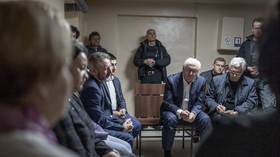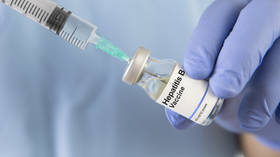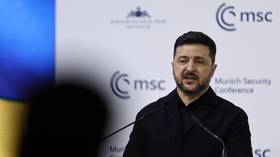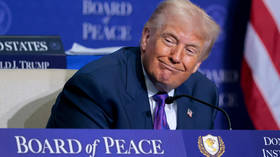Berlin and Moscow are now opponents – German president
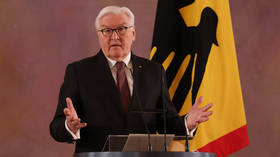
German President Frank-Walter Steinmeier has declared that Moscow and Berlin now stand against each other. He cited Russia’s military operation in Ukraine as the reason for the re-evaluation of bilateral relations and added that there is no turning back to “old dreams.”
Addressing the nation on Friday, Steinmeier described Russia’s decision to launch its military campaign in February as a watershed event.
He admitted that many people in Germany “feel connected to Russia and its people, love Russian music and literature.” But the new reality means “there’s no place for old dreams,” the official explained, referring to former Soviet president Mikhail Gorbachev’s idea of a “common European home.”
“Our countries oppose each other today,” Steinmeier stated.
The president proclaimed that Germany is “in a conflict” but also said it is not “at war.” A further escalation of hostilities in Ukraine, and the direct involvement of other nations in the conflict, should be avoided, he stressed.
Addressing the new Ukrainian ambassador to Germany, Alexey Makeev, Steinmeier pledged Berlin’s continued support for Kiev – military, financial and political – “for as long as is necessary.”
He also warned his compatriots of “hard years, rough years” ahead.
“For Germany, an epoch of the headwind begins,” Steinmeier claimed.
The president acknowledged that the sanctions imposed on Moscow by Berlin are hurting Germany as well. However, he said the European economic powerhouse had no other choice but to introduce punitive measures.
Steinmeier went on to claim that sanctions, despite the obvious adverse consequences, are in Germany’s best interest in the long run. As an example, he cited Berlin’s struggle to free itself from dependence on a “regime… that uses energy as a weapon.” For Germany and Germans, the current challenges are the “acid test,” which the nation must withstand.
Soon after the start of Russia’s military campaign against Ukraine, Germany, along with the rest of the EU and the US, slapped Russia with sweeping economic sanctions.
Berlin also abandoned its initial refusal to supply Kiev’s forces with offensive weaponry, and now provides it with artillery, rockets, anti-aircraft missile systems, and vehicle-mounted cannons.
Moscow has repeatedly warned that such arms shipments by NATO members only prolong the fighting in Ukraine and make the US-led military bloc a de facto party to the conflict.
